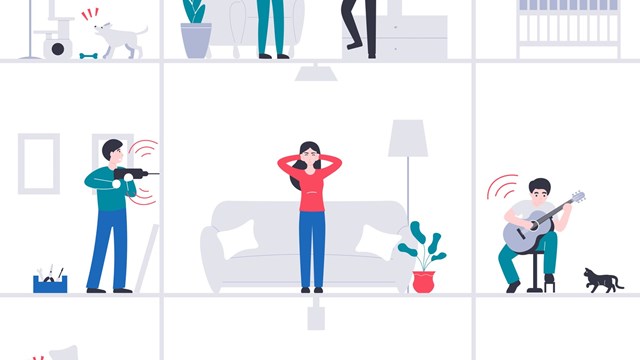
Over the years, multifamily co-op and condominium buildings have been notorious for the plethora of restrictions many impose upon residents, from smoking bans to strict quiet hours to forbidding holiday displays. While many of these restrictions have receded over time, one particularly stubborn point of contention has been ‘no dog’ or ‘no pet’ policies. Recent changes to local laws and regulations pertaining to the right of residents to keep emotional support animals has changed that, however. In many respects, the recognition of those rights has effectively eliminated ‘no pet’ policies. (That’s the case in the author’s building, where a 25-year ban on dogs of any kind is still in place, but has effectively been neutered by the co-op acceding to emotional support dogs.
What’s Changed?
“New York City human rights law protects against disability discrimination in housing,” explains Hal Coopersmith, a partner at Manhattan-based law firm Coopersmith & Coopersmith. Permitting a resident to have a dog is viewed as a “reasonable accommodation for their disabilities. A co-op may still have a no pet policy, but must permit an emotional support animal as a reasonable accommodation.”
Across the Hudson, circumstances in New Jersey are not much different.
“Generally speaking,” says Michael Simone, principal at the Simone Law Firm in Cinnaminson, “New Jersey homeowner associations and condominiums are permitted at this time to preclude pets from their buildings. These restrictions are typically found in the governing bylaws. Historically, for various reasons depending on the type of structure, size of the units, and personal preference, governing laws were created to restrict pets in individuals’ homes. However, more recently, with the increased utilization of service dogs and emotional support animals, the rules have been evolving. Now, HOAs and condominiums cannot preclude an owner of a pet if it is a service dog or emotional support animal.”
Does This Make ‘No Dog’ Policies Moot?
So does this mean it’s time for shared interest communities to throw in the towel on banning dogs and other animals? Despite the fact that as of 2022, 44.5% of U.S. households owned dogs and 29% owned cats (according to Forbes magazine), there are certainly neighbors who object to having dogs in their building. In many cases, that may even be why they chose that particular building in the first place. Can a reasonable ‘no dog’ policy still stand?
“It is still possible to have a no pet or no dog policy,” says Coopersmith, “however, a co-op must make a reasonable accommodation for an individual requesting an emotional support animal, unless [that would create] undue hardship, which is a substantial obstacle for a co-op to overcome before the pet is brought into the building. In this regard, co-ops with ‘no dog’ policies should state that there are no pets, except as a reasonable accommodation.” Potential buyers must be informed.
In New Jersey, Simone points out, “If an association denies the request [for an emotional support or service animal], then the association may have violated New Jersey’s Law Against Discrimination (LAD) N.J.S.A. 10:5-1 to -49, and the Federal Americans with Disabilities Act (ADA). Both sets of laws offer broad protections to people with disabilities who use service animals to assist them. This then places an association in an awkward situation of distinguishing who is permitted to have a pet versus others who cannot at this time. As a result, the association has the right to request proof of a doctor’s note explaining the resident’s need, and supporting documentation confirming the residents’ request. Once that information is provided to the board, then the board does not have discretion to still deny the request. However, if a resident refuses to fill out the form provided by the association and furnish a note, then the association has the right to still deny the request.”
Faking it for Fido
While few would deny anyone with a legitimate need for a service or emotional support animal, the fact remains that it’s not difficult to obtain a ‘certificate’ or other sketchy documentation ‘proving’ the need for such a pet online for just a few dollars - and some physicians are more than willing to prescribe a pet to a patient regardless of need. What can boards and managers do to prevent malingerers from taking advantage of the law in order to skirt their building’s rules? The true answer is… nothing. They must either take the doctor at their word, or commit to litigating suspicious certificates - almost certainly at great expense and acrimony. Under the law though, there are still some options and loopholes for boards to consider.
In New York, explains Coopersmith, “Emotional support animals must still comply with health codes. If an animal has been shown to be vicious, then the co-op can seek to show that the animal is an undue burden, and that other residents are harmed by its presence. The exclusion of one emotional support animal does not prohibit a resident from obtaining an accommodation for a second animal.”
Simone adds that in New Jersey, “At times an association may still deny the pet request due to an incomplete application being filed, or the owner refusing to submit proof of a doctor’s note. In either case, the recourse in New Jersey is to request alternative dispute resolution (ADR) with the governing board. If still the issue is not resolved, ultimately the resident may also submit a formal complaint with the New Jersey Attorney General’s Office under the Department of Law & Public Safety, New Jersey Division on Civil Rights.”
Given both the popularity of pets and the increased awareness of mental health issues and the tools for dealing with them, it may be time for boards to consider rewriting their pet rules to more explicitly accommodate emotional support and service animals, while at the same time setting up parameters that are acceptable to the entire community without stepping on anyone’s rights.









3 Comments
Leave a Comment